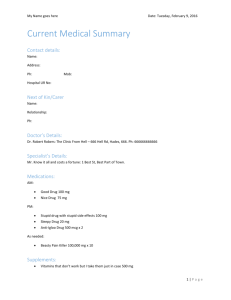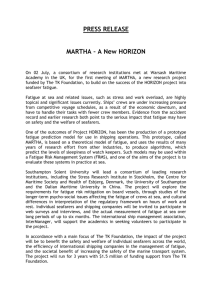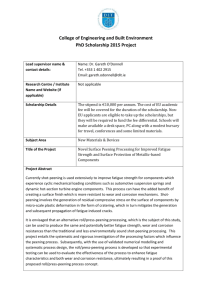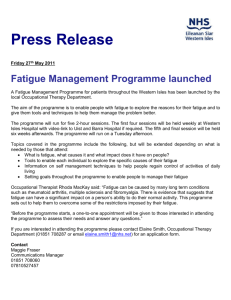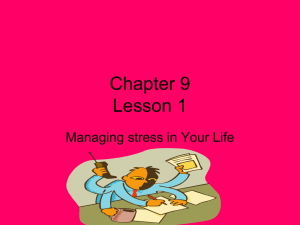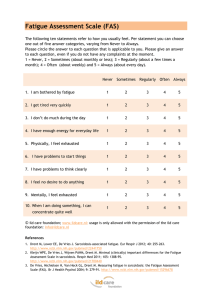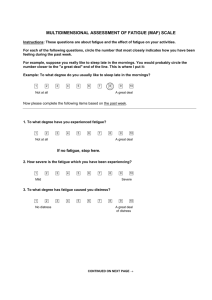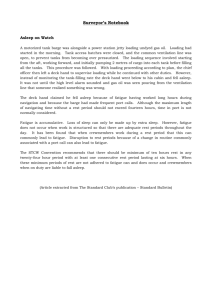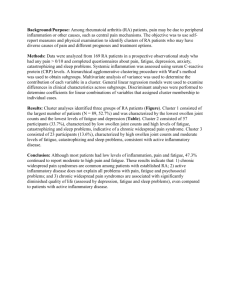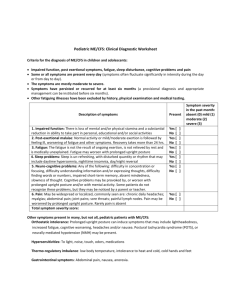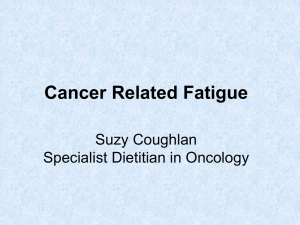Microsoft Word - UWE Research Repository
advertisement
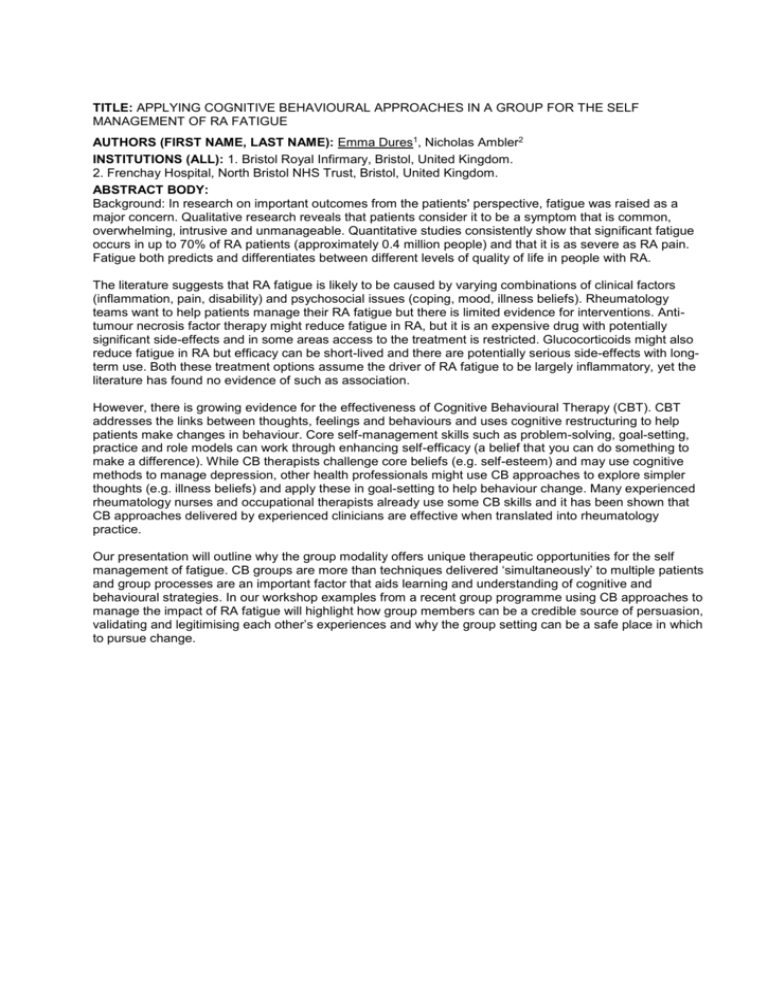
TITLE: APPLYING COGNITIVE BEHAVIOURAL APPROACHES IN A GROUP FOR THE SELF MANAGEMENT OF RA FATIGUE AUTHORS (FIRST NAME, LAST NAME): Emma Dures1, Nicholas Ambler2 INSTITUTIONS (ALL): 1. Bristol Royal Infirmary, Bristol, United Kingdom. 2. Frenchay Hospital, North Bristol NHS Trust, Bristol, United Kingdom. ABSTRACT BODY: Background: In research on important outcomes from the patients' perspective, fatigue was raised as a major concern. Qualitative research reveals that patients consider it to be a symptom that is common, overwhelming, intrusive and unmanageable. Quantitative studies consistently show that significant fatigue occurs in up to 70% of RA patients (approximately 0.4 million people) and that it is as severe as RA pain. Fatigue both predicts and differentiates between different levels of quality of life in people with RA. The literature suggests that RA fatigue is likely to be caused by varying combinations of clinical factors (inflammation, pain, disability) and psychosocial issues (coping, mood, illness beliefs). Rheumatology teams want to help patients manage their RA fatigue but there is limited evidence for interventions. Antitumour necrosis factor therapy might reduce fatigue in RA, but it is an expensive drug with potentially significant side-effects and in some areas access to the treatment is restricted. Glucocorticoids might also reduce fatigue in RA but efficacy can be short-lived and there are potentially serious side-effects with longterm use. Both these treatment options assume the driver of RA fatigue to be largely inflammatory, yet the literature has found no evidence of such as association. However, there is growing evidence for the effectiveness of Cognitive Behavioural Therapy (CBT). CBT addresses the links between thoughts, feelings and behaviours and uses cognitive restructuring to help patients make changes in behaviour. Core self-management skills such as problem-solving, goal-setting, practice and role models can work through enhancing self-efficacy (a belief that you can do something to make a difference). While CB therapists challenge core beliefs (e.g. self-esteem) and may use cognitive methods to manage depression, other health professionals might use CB approaches to explore simpler thoughts (e.g. illness beliefs) and apply these in goal-setting to help behaviour change. Many experienced rheumatology nurses and occupational therapists already use some CB skills and it has been shown that CB approaches delivered by experienced clinicians are effective when translated into rheumatology practice. Our presentation will outline why the group modality offers unique therapeutic opportunities for the self management of fatigue. CB groups are more than techniques delivered ‘simultaneously’ to multiple patients and group processes are an important factor that aids learning and understanding of cognitive and behavioural strategies. In our workshop examples from a recent group programme using CB approaches to manage the impact of RA fatigue will highlight how group members can be a credible source of persuasion, validating and legitimising each other’s experiences and why the group setting can be a safe place in which to pursue change.

